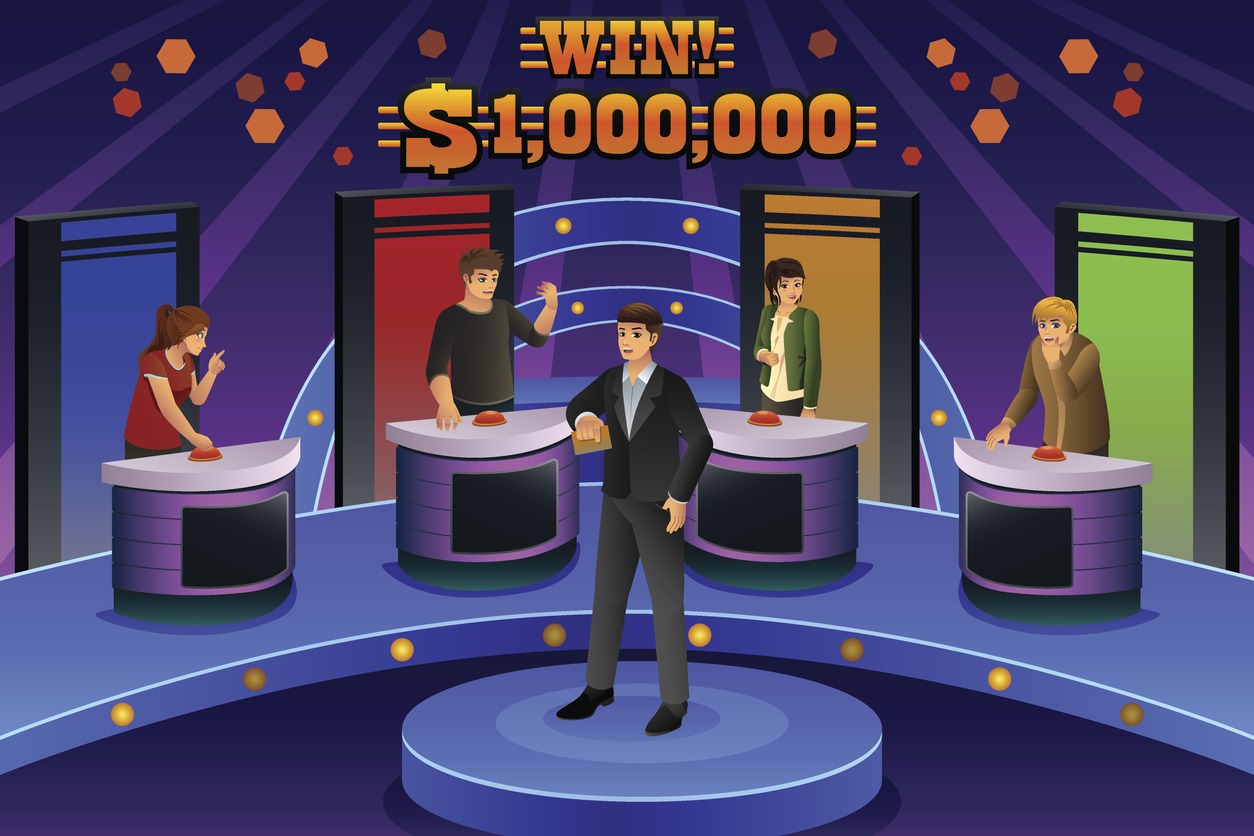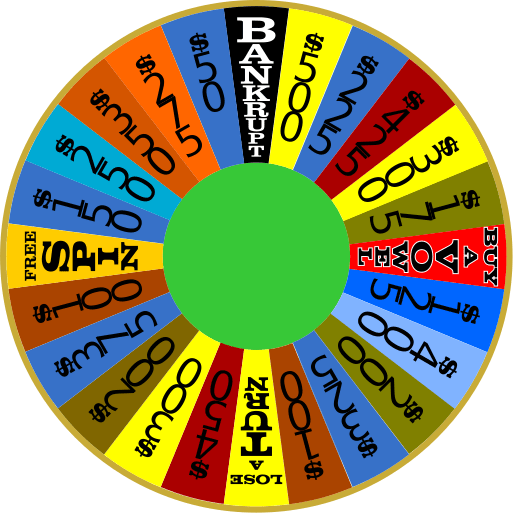The 1970s was a decade marked by vibrant cultural shifts, and nowhere was this more evident than in the world of television, particularly in the realm of game shows. These programs weren’t just about winning prizes; they became a daily ritual for families, offering a blend of entertainment, competition, and a glimpse into the changing fabric of society.
Among these, certain game shows stood out, capturing the hearts and imaginations of audiences across America. They were more than mere distractions; they were a communal experience that brought together people of all ages. In this article, we’ll explore some of the most iconic TV game shows of the 1970s that not only defined a generation but also left an indelible mark on the landscape of entertainment.
The Golden Age of Game Shows
The 1970s are often referred to as the Golden Age of TV game shows, a period when the format truly came into its own and became a staple of American television. This era witnessed an explosion in the popularity of game shows, driven by a combination of charismatic hosts, engaging formats, and the promise of lucrative rewards. The game shows of this time were not just about the prizes or the competition; they were about creating moments of joy, laughter, and genuine surprise that resonated with viewers from all walks of life.
Innovations and Variety
During this golden age, game shows became a playground for innovation and creativity. Producers experimented with various formats, from trivia and word puzzles to physical challenges and obstacle courses. This period also saw the introduction of many elements that have since become staples of the genre, such as the use of dramatic pauses, suspenseful music, and the engaging banter between hosts and contestants. These innovations added a new level of excitement and engagement to the shows, making each episode a must-watch event.
Cultural Impact
Game shows in the 1970s did more than entertain; they mirrored and sometimes even influenced the cultural trends of the time. They brought diverse groups of people into the living rooms of millions, breaking down social barriers and fostering a sense of unity and common purpose. The shows also reflected the era’s changing attitudes towards gender, race, and class, providing a platform for a broader range of voices and stories. This cultural resonance helped to cement the status of game shows as a vital part of the entertainment landscape, one that offered not just amusement but a reflection of society itself.
Legacy
The legacy of the 1970s as the Golden Age of game shows is still felt today. Many of the era’s most popular shows have been revived or adapted for new generations, proving the enduring appeal of the game show format. The innovations of the 1970s set the stage for the evolution of the genre, influencing the development of game shows around the world. As we look back on this golden age, it’s clear that the game shows of the 1970s did more than just capture audiences; they transformed television and left an indelible mark on popular culture.
Iconic Game Shows of the 1970s
The 1970s was a decade that reshaped the landscape of television game shows, introducing a variety of programs that would become household names. Here’s a look at some of the most iconic game shows from that era, each with its unique charm and appeal.
The Price Is Right
“The Price Is Right,” hosted by the charismatic Bob Barker, became synonymous with daytime television. It has a simple yet engaging premise—where contestants guessed the price of everyday items to win prizes—which captured the imagination of viewers. The show’s innovative games like ‘Plinko’ and ‘Cliffhangers,’ combined with the excitement of the Showcase Showdown, ensured its place in TV history.
Family Feud
“Family Feud” made its debut in the latter half of the 1970s, offering a novel twist on the game show format by pitting two families against each other in a battle of survey responses. Hosted by Richard Dawson, whose affable nature and signature kisses became a trademark, the show was as much about family dynamics as it was about the competition, making it a staple of American entertainment. You may also read our article, Which Were the Ultimate TV Game Shows of the 90s? to learn more about classic game shows.
Match Game
“Match Game,” with its blend of celebrity participation and fill-in-the-blank word puzzles, offered a mix of humor and innuendo that stood out in the game show genre. Hosted by Gene Rayburn, the show was known for its celebrity panel’s witty banter and the often hilarious and unpredictable responses from contestants and panelists alike, making it a highlight of daytime television.
Jeopardy!
Although “Jeopardy!” originally premiered in the 1960s, its revival in the 1970s brought a new level of sophistication to game shows. Hosted by Art Fleming, the show’s format of providing answers and requiring contestants to respond in the form of a question was both innovative and intellectually stimulating. “Jeopardy!” appealed to viewers’ love of trivia and learning, setting a high standard for quiz shows. Did you know that “Jeopardy!” still aired in the 2010s? Discover more classic TV shows in our article about The Game Shows That Dominated Our Screens in the 2010s.
Wheel of Fortune
“Wheel of Fortune” debuted in the late 1970s, bringing the excitement of a casino-style game to television. The show combined the thrill of spinning a giant wheel with the challenge of solving word puzzles. Hosted by Chuck Woolery initially, the show’s blend of luck and skill, along with the charismatic presentation, ensured its longevity and popularity.
These game shows not only dominated television ratings in the 1970s but also became cultural touchstones, remembered fondly by those who grew up watching them. Their formats, personalities, and memorable moments continue to influence the game shows of today, proving the enduring appeal of this golden era of television entertainment.
Other Notable Game Shows in the 1970s
The 1970s were indeed a vibrant era for game shows, with many programs leaving an indelible mark on the genre. Beyond the iconic shows like “The Price Is Right” and “Family Feud,” there were several other notable game shows that captivated audiences with their unique formats and engaging gameplay.
- Let’s Make a Deal: “Let’s Make a Deal,” hosted by Monty Hall, was a game of choice and chance, where contestants dressed in outlandish costumes to stand out and get selected from the audience. The show was famous for its “deals,” where contestants chose between known prizes and mystery prizes hidden behind doors, in boxes, or within envelopes, leading to suspenseful and often humorous outcomes.
- Hollywood Squares: “Hollywood Squares” combined celebrity participation with tic-tac-toe, where contestants played the game by agreeing or disagreeing with the answers given by celebrities to host Peter Marshall’s questions. The show was known for its humorous banter, particularly from center square regulars like Paul Lynde, whose witty quips became a hallmark of the show.
- Password: “Password,” hosted by Allen Ludden, was a word association game where contestants paired with celebrities to guess words based on one-word clues. The simplicity of the format, combined with the mental agility required to make connections between words, made “Password” a beloved classic of the genre.
- The Gong Show: “The Gong Show,” created and often hosted by Chuck Barris, was a talent contest with a twist. The show featured amateur performers who were often bizarre or lacking in evident talent, with a panel of celebrity judges who could end a performance prematurely by striking a large gong. “The Gong Show” was known for its offbeat humor and became a cult favorite for its sheer unpredictability and embrace of the absurd.
- The Newlywed Game: “The Newlywed Game,” hosted by Bob Eubanks, offered a humorous look at newly married life by asking couples questions about each other and their relationships. The show was famous for its moments of unexpected candor and the occasional risqué answer, leading to many memorable and often blush-worthy moments on television.
These shows, along with the previously mentioned iconic game shows, reflect the diversity and creativity of the game show genre during the 1970s. They provided entertainment that ranged from intellectual challenges and strategic gameplay to humor and lighthearted fun, showcasing the wide appeal of game shows and their significant role in 1970s television culture. You may also read our article about the game shows in the 2000s.
Legacy and Influence
The game shows of the 1970s did more than just entertain; they left a profound legacy that continues to influence the television landscape and popular culture today. Their innovative formats, charismatic hosts, and engaging interplay between contestants and audience set standards that have been emulated and adapted by countless shows in the ensuing decades.
Pioneering New Formats
The 1970s game shows were trailblazers in creating and popularizing formats that have become staples of the genre. For instance, the interactive style of “Family Feud” and the pricing games of “The Price Is Right” have been replicated and modified in various cultures around the world, proving the universal appeal of these concepts. The success of these shows demonstrated the potential for game shows to be more than simple question-and-answer formats, incorporating elements of strategy, negotiation, and physical challenges.
Influence on Modern Game Shows
Modern game shows owe much to the innovations of the 1970s. The use of technology, audience participation, and the integration of narrative elements can all trace their roots back to this era. Shows like “Who Wants to Be a Millionaire?” and “The Amazing Race” reflect the influence of 1970s game shows in their suspenseful pacing, engaging host dynamics, and strategic play elements that keep both contestants and viewers deeply engaged.
Cultural Impact
The game shows of the 1970s also had a significant cultural impact, reflecting and shaping societal norms and attitudes. They were among the first television formats to regularly feature women, people of color, and individuals from various socio-economic backgrounds in prominent roles, both as hosts and contestants. This inclusivity helped broaden viewers’ perspectives and foster a greater sense of empathy and community among diverse audiences.
Nostalgia and Revival
The enduring popularity of 1970s game shows is evident in the numerous revivals and adaptations that continue to appear on television. The nostalgia for these original programs has led to a resurgence of interest in classic game show formats, with networks and streaming platforms bringing back beloved shows with modern twists. This nostalgia not only celebrates the past but also introduces new generations to the charm and wit of these timeless formats.
Educational Influence
Beyond entertainment, the legacy of 1970s game shows extends into education, where the format has been used as a tool for learning in classrooms and training environments. The engaging and competitive nature of game shows makes them an effective method for teaching a wide range of subjects, from language arts to science, mirroring the intellectual challenge and fun of shows like “Jeopardy!”’
Conclusion
The game shows of the 1970s were a cultural phenomenon that left a lasting impact on television and society. With their innovative formats, memorable hosts, and inclusive casting, these shows not only captivated audiences of their time but also set the stage for future generations of game shows. The legacy of the 1970s game shows continues to resonate, reminding us of the power of television to bring people together, challenge our minds, and provide endless amusement.

